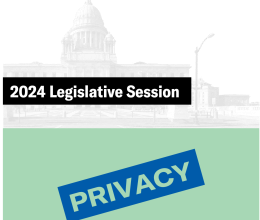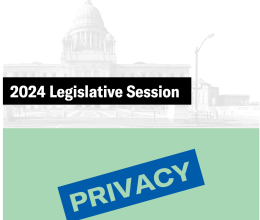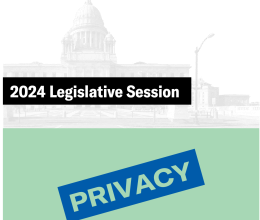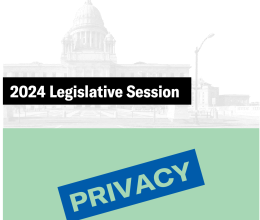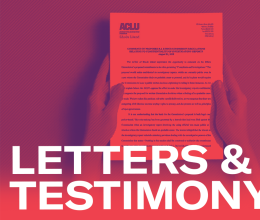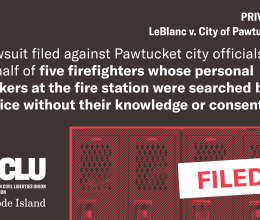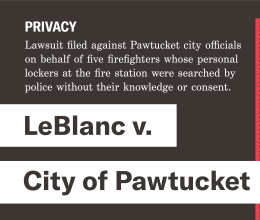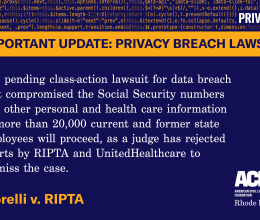By Johanna Kaiser, Development & Communications Associate
With Constitution Day last week, we have been taking a look at some of the amendments to the U.S. Constitution and what they mean today. Our policy associate drew parallels between the failed 18th Amendment and the failed “War On Drugs.” While the president of the Roger Williams University Law School Chapter of the ACLU wrote about how he hopes to become a Public Defender so he can make good on the guarantees of the 6th Amendment. Now, we’re taking a look at the 4th Amendment and how this amendment, written over 200 years ago, still plays an important role in our fast-changing world.
In short, it’s the 4th Amendment that protects our privacy and keeps us free from unnecessary or unfair intrusions by the government. It guarantees an individual’s right to be “secure in their persons, houses, papers, and effects, against unreasonable searches and seizures shall not be violated” and lays out how and when the government may search and seize an individual or their property. It is the 4th Amendment that requires law enforcement to prove probable cause and obtain a warrant describing the scope of the search before they may legally conduct a search of you or your property.
The idea that police cannot barge into your home and riffle through your belongings whenever they choose is clearly established, but our “papers” and “effects” are no longer found only on our desks and in our homes. Thanks to smartphones, email, and the Internet, we can carry mountains of information about ourselves right in our front pockets. And, as our ability to store and share information has greatly increased, so, too has the government’s ability to search and seize this information. What does that mean for the ACLU? It means that we must ensure that, even as technology evolves in ways that the Founding Fathers likely could have never imagined, the principles they enshrined in the Bill of Rights still apply.
While our National office has been on the forefront of the fight against the federal government’s expansive surveillance and data-collection programs, the ACLU of Rhode Island has been leading the fight to protect your privacy from local law enforcement agencies using 21st century technologies to track or monitor you.
We’ve drafted a comprehensive package of privacy bills that would proactively protect your privacy rights before they are violated. These bills bar law enforcement from accessing information contained in a cell phone and from obtaining cell phone location information from telecommunications companies without a warrant. They would also limit law enforcement’s use of drones to conduct surveillance. We’ve also fought police efforts to use license plate scanners that scan every license plate on the street, and are capable of storing tracking location of the cars indefinitely.
As you work with us to establish these important safeguards, it’s important to remember isn’t the first time new technologies have raised questions about the right to privacy. In 1928 the U.S. Supreme Court ruled that the warrantless wiretapping of a phone line by law enforcement did not violate the Fourth Amendment because listening to phone conversations did not constitute a search and seizure because it was not a physical examination of a person’s belongings. The decision was rightly reversed in 1967, but a quote from the dissent of Supreme Court Justice Louis Brandeis has lasted: “The right to be left alone—the most comprehensive of rights, and the right most valued by a free people.”
And we are making progress to protect this right. In another U.S. Supreme Court case in 2013, the court held unanimously that in most situations police officers are not automatically allowed to search the cell phone of someone they arrest. Rather police must, Chief Justice John Roberts wrote for the court, “Get a warrant.”

